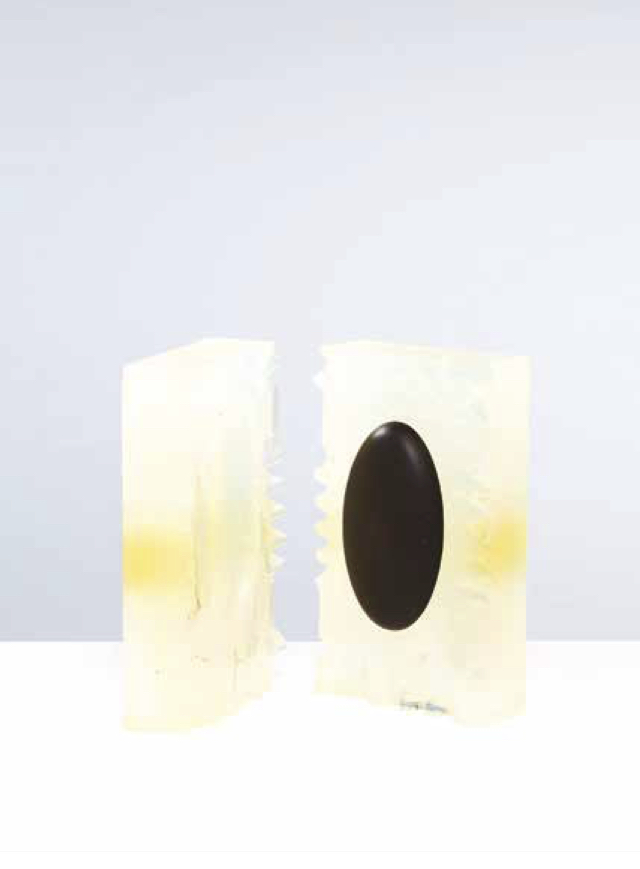Open
Collaborative
Making
A digital perspective. As part of V&A Digital Design Weekend 2014


REACT
Tom Metcalfe
REACT Objects Sandbox
We – REACT Objects Sandbox* – recently funded six collaborations between academic researchers and creative businesses to explore the human experiences in the ‘Internet of Things.’
It has become clear that the nature of the relationship between the Internet and our material world is rapidly changing, especially as people’s acceptance of ubiquitous digital technology grows. The ‘Internet of Things’ (IoT); the convergence of the Internet and the material world, is going to become increasingly pervasive, inconspicuous and sophisticated and has the capability to profoundly change our environment.
If our environment is to be profoundly altered, then we need to engage people who understand human behaviour, society and history – the state of living – which is in part what we do in REACT. Their involvement isn’t just participation in critical discourse, but to collaborate with creative studios to create well considered physical products that can exist successfully in the world and provide an alternative to innovation which solely focusses on productivity, efficiency and surveillance. We fund and support collaborations between Arts and Humanities scholars, arguably those who best understand the ‘state of living’, and creative businesses. Each collaboration is supported by the producer within a framework developed through Watershed called Sandbox. The Sandbox framework allows us to explore alternatives to purely technology driven innovation and consider a more nuanced, holistic approach.
Although Sandbox is a framework for exploration and R&D, it’s also a set of values and ideals. People are central to Sandbox. People as users, viewers and audiences but also everyone within the cohort (those involved in the six projects.) We curate people as much as ideas. We believe diversity of experience, knowledge and skills is beneficial, in fact the more diverse the cohort the better. The bringing together of people with differing levels of skills in different areas raises a quality aspiration threshold throughout Sandbox. It’s clear each project is better for this diversity and it is one of the biggest advantages to funding multiple projects at once rather than funding just one. The Sandbox producer plays a key role in brokering relationships, finding appropriate contacts and maintaining the process as a dynamic network. Sandbox is around three months of exploration. The collaboration starts with an insight or a nascent idea which is then explored. Throughout the 3 months there are a number of workshops where the cohort comes together, each programmed by the producer. These are the opportunities for the project teams to share, question and critique each other.
Through these workshops and meetings the producer and industry advisors encourage collaborations to adopt and share knowledge and methodologies from academic research; we borrow thinking and processes from design and business and draw upon our experience from the cultural sector. The projects focus on the possible experiences for the user or audience whilst seeking to understand the value, however that may be de ned, to everyone within the product’s eco-system. It is explorative R&D and product development in quite a short period of time and each project does it differently.
Measuring success, and equally, failure is tricky. But a minimum for success is a well-considered concept; well-designed, where user-experiences are engaging and demonstrate value propositions. To achieve this type of success in this intensive short period of time I believe you need a framework underpinned by values and ideals and a cohort, all implemented and programmed by a producer, that isn’t employed by any collaborators’ institution.
Technology and innovation is rapidly changing our world, like never before. But there shouldn’t be just one way to innovate, innovation must come in many forms. Objects Sandbox is our contribution to the development and conversation around the ‘Internet of Things.’ If we could have a legacy, I’d hope it was that we also showed how important the bigger picture is to technology innovation and why we need to consider the state of living.
Tom Metcalfe – Producer, REACT Objects Sandbox.
REACT
REACT is a knowledge exchange hub funded by the Arts and Humanities Research Council. It is a collaboration between the University of the West of England and Watershed and the universities of Bath, Bristol, Cardiff and Exeter. REACT business development is funded by iNets SouthWest Creative Industries through Creative England and ERDF.
